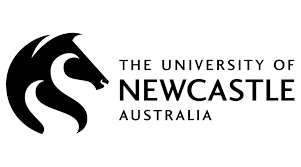University of Newcastle: Researchers investigate recovery from intimate partner violence
Hunter Medical Research Institute (HMRI) and University of Newcastle researchers have discovered women who experience Intimate Partner Violence (IPV) are nearly twice as likely to suffer mental health disorders and only around 22 per cent felt fully recovered after a decade.
The team conducted an anonymous online survey of 665 people with lived experience of Intimate Partner Violence (IPV) to attempt to find out if recovery was possible and, if so, how long it took.
IPV is defined as physical, sexual and psychological abuse.
Study author and PhD researcher Mary Jean Carman said currently little was known about the recovery potential of survivors of IPV.
“What we wanted to find out with this study was how long does recovery take? Is hope a factor in recovery or is time a more significant factor? And does the age of the person, and the length of time that they experienced abuse, impact their ability to recover?” Ms Carman said.
The survey questioned women, aged between 18 and 65 years, who had left an abusive relationship more than two years ago, to determine how they were coping.
About 45 per cent of Australian women will experience a mental health disorder during their lifetime. Women surveyed in this study reported 1.8 times the national prevalence for mental health disorders.
The survey also found only 14 per cent of women in long term recovery (more than two years since leaving the abusive relationship) felt fully recovered. For women who were at least 10 years out of an abusive relationship, the number who felt fully recovered only increased to 22 per cent.
The survey showed 90 per cent of women had accessed medical, housing, employment, and charity support services. The same proportion of the women reported enduring abuse for more than two years. Of these women, half had experienced abuse for up to 10 years and half had endured abuse for more than 10 years.
PHD supervisor, Professor Frances Kay-Lambkin, says, “Globally, it is accepted that approximately one in three women will experience intimate partner violence in their lifetime and yet current interventions have done little to reduce that number.”
“Before we can establish more effective solutions, we need to know more about the nature of recovery,” Professor Kay-Lambkin said.

